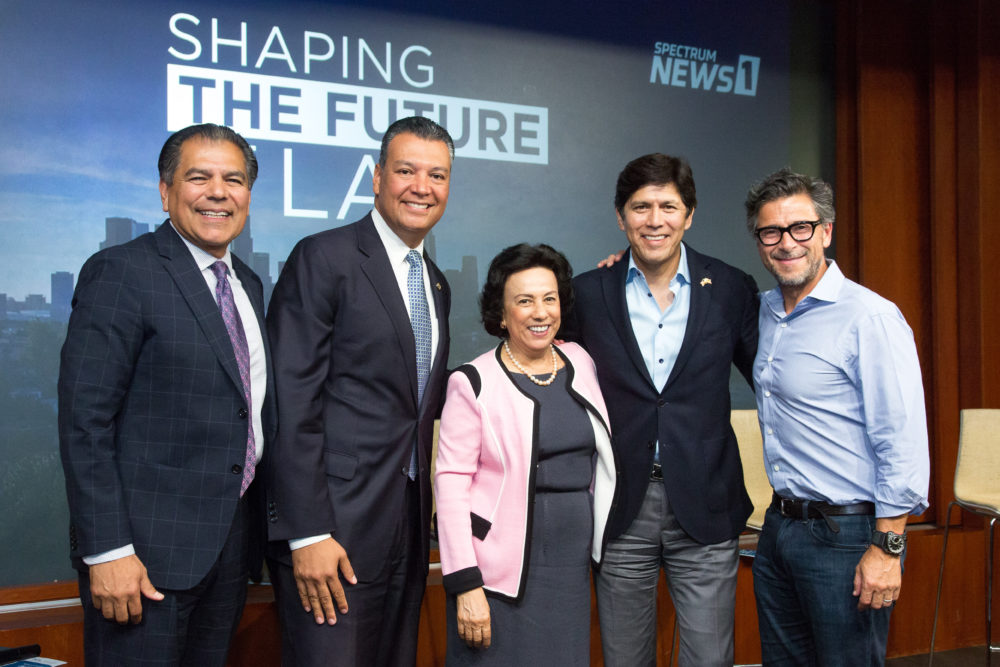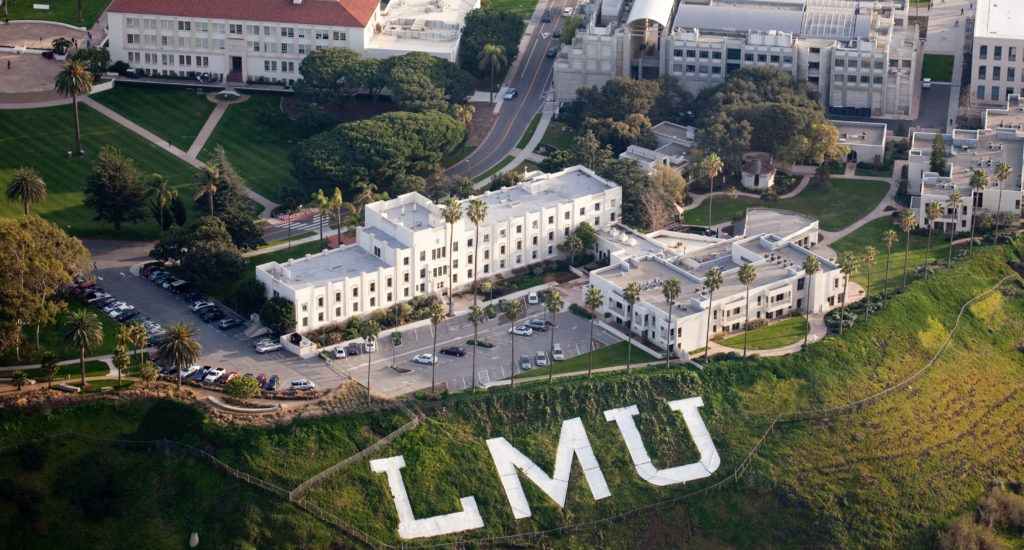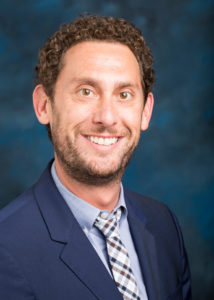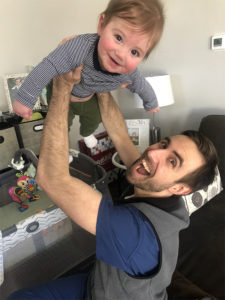LMU BELLARMINE COLLEGE OF LIBERAL ARTS | A high-profile panel of Latino officials assembled at Loyola Marymount University to pore over the effects of Proposition 187, the 1994 initiative that divided California and changed its political landscape. As America is currently in one of its most heated political climates, “Latinos: Shaping the Future of L.A.,” added to the important reflections on how past events have built the world around us. The event was held before a crowd of mostly students on Oct. 22, 2019, in Ahmanson Auditorium.
Speakers at the event included Alex Padilla, California’s current secretary of state; Antonia Hernandez, CEO of the California Community Foundation and former president of Mexican American Legal Defense and Education Fund; Kevin de León, former president pro tempore of the California State Senate; and Fabian Núñez, former speaker of the California State Assembly. Fernando Guerra, LMU professor of political science and Chicano/a Studies and director of the Center for the Study of Los Angeles, served as a moderator at the event. Though the panel celebrated individual cultures, a large focus was a reminder to be united as a country and a species.
“We are diverse as we are alike, and we have to look at our common humanity,” Hernandez said. “I happen to be a Latina. I happen to be an immigrant. But first and foremost, I am a human being. What we’re going through right now is people dwelling on our differences, but we have so much more in common than different.”
In 1994, Proposition 187 was created to prevent illegal immigrants from using California public services such as health care or public schools. The law was passed on Nov. 8, 1994, with nearly 60 percent of the state voting in favor. However, a mere three days later on Nov. 11, the law was deemed unconstitutional after several protests broke out all over California and the rest of the country. Padilla accredited the original passing of Proposition 187 to politicians scapegoating immigrants to create fear within the rest of the population.
“There were politicians who had the ability to manipulate people by saying, ‘You know what? I know why you lost your job. I know why you lost your home. It is because of those people and how they look,’” Padilla said. “They successfully on an emotional level pitted the state against each other.”
Many politicians and observers cite the events surrounding Proposition 187 as the incident that turned California from a majority Republican state to a majority Democratic state. The outrage caused from Proposition 187 ignited a passion within many people of color to get involved in politics to be able to make a difference. Padilla, de León and Núñez all stated that they would not have found their way into political office without Proposition 187 inspiring them to take action.
The increase of diverse politicians, de León said, “changed California dramatically because we were positions of power where we could use that political capital to lure public policies that altered and improved human condition regardless of who you are, of where you come from, of the color of your skin, your status, who you love, or which God you pray to.”
Today, California is among the most culturally diverse states in America. Hernandez believes that this is California’s greatest strength. She is adamant that California is a prime example for the rest of the country of why it is important to embrace our differences.
“If you look at California, what you really have is the realization that diversity and inclusiveness are a positive thing. It’s what makes this country great,” Hernandez said. “We are enriched and made better by all the world coming here into California, and I do believe that’s what we need to show to the country. That’s what we need to bring to other states and the rest of the world.”
Reporter Saffy Laurio is a first-year screenwriting major.




